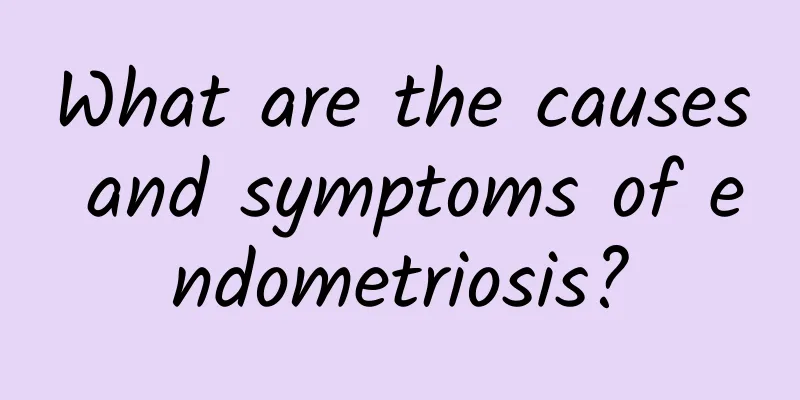What are the causes and symptoms of endometriosis?

|
Endometriosis is strange, it is a benign disease and can be treated clinically. So, what is the cause of endometriosis? Endometriosis is a common gynecological disease caused by the implantation of endometrial cells in abnormal locations. Endometrial cells should grow in the uterine cavity, but because the uterine cavity is connected to the pelvic cavity through the fallopian tubes, endometrial cells can enter the pelvic cavity through the fallopian tubes and grow ectopically. According to clinical experience, this gynecological disease is mainly divided into endometriosis symptoms such as intestinal symptoms, urinary tract symptoms, and acute abdominal symptoms. Among them, the more serious is the acute abdominal symptoms. There are a few ovarian abnormalities before or during menstruation, which are easy to misdiagnose. In many cases, endometriosis is often misdiagnosed as appendicitis and ectopic pregnancy, and is often confirmed to be endometriosis during surgery. Endometriosis is a condition in which the lining of the uterus, called the endometrium, grows in other parts of the body instead of covering the uterine cavity. Causes of endometriosis include: 1. Not paying attention to menstrual hygiene. During menstruation, women undergo unnecessary internal diagnostic examinations during gynecological examinations, excessive squeezing, and the use of menstrual vaginal suppositories can easily increase the chance of menstrual blood reflux and greatly increase the amount of menstrual blood. 2. Menstrual disorders. Especially shortened menstrual cycle, frequent menstruation, heavy menstrual flow, long menstrual cycle, menstrual abdominal pain, etc. These menstrual disorders increase the frequency and amount of blood flowing from the fallopian tube to the pelvic cavity. 3. Incorrect uterine position. The normal uterine position is tilted forward and bent forward, which is conducive to the outflow of menstrual blood. If the uterus tilts backward, especially to a severe degree, it is easy to cause poor menstrual blood outflow, accumulation in the uterine cavity, increase the pressure in the uterine cavity, and create conditions for menstrual blood to flow backward into the abdominal cavity. |
<<: What to do if uterine fibroids cause severe anemia
>>: Is ovarian cyst related to menstrual disorder? What are the examination methods?
Recommend
What are the diagnostic criteria for dysmenorrhea?
What are the diagnostic criteria for dysmenorrhea...
How to prevent chronic cervicitis in life?
Cervicitis is divided into acute cervicitis and c...
Several common symptoms of dysmenorrhea in women
Many female friends do not understand the symptom...
Belly obesity, love to eat potato chips at night...it turns out to be adrenal fatigue! Vitamin D supplementation to combat stress
Why do some people try many weight loss methods s...
Experts introduce the specific causes of adnexitis
What are the causes of adnexitis? Experts say tha...
Is ovarian cyst a serious disease?
Ovarian cysts are a common gynecological disease,...
What tests are needed for cervical hypertrophy?
Correctly checking for cervical hypertrophy is an...
Obesity is not a blessing! A 140kg fat man lost 71kg in just 10 months through weight management!
Obesity is not a blessing! Obesity not only affec...
How to treat female cervical erosion of degree 2? Treatment of female cervical erosion of degree 2
The second degree treatment of cervical erosion c...
What are the main symptoms of ovarian cysts?
What are the main symptoms of ovarian cysts? Many...
What medicine should I take if I have uterine adnexitis?
What are the drug treatments for uterine adnexiti...
What should patients with uterine fibroids pay attention to? Is surgery necessary for uterine fibroids?
For patients with myoma, the age for hysterectomy...
Which hospital is best for abortion in Hangzhou?
There are many hospitals that can be used for abo...
If you don’t want to gain weight, walk 7116 steps every day!
Most obese people want to find a quick way to los...
Pressure fat! Drink fat-burning tea + twist your waist and press the belt meridian acupoints
Middle age is a period when weight becomes out of...









